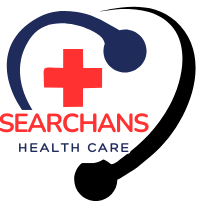Understanding medical conditions and treatment options is vitally important for those seeking to stay healthy. This guide seeks to inform readers so they can take steps towards living more healthily in the future.
Head-to-toe visual diagnostic guides help identify health issues based on symptoms. Any warning signs should never be ignored and concise explanations of illnesses and injuries help find immediate care quickly.
Prevalent Medical Conditions
Prevalence refers to the number of individuals affected by a medical condition at any one time. It provides vital insights into an individual’s health status, helping healthcare providers create effective plans and make effective healthcare decisions. Common medical conditions include headache, common cold, heart diseases and respiratory disorders – with proper knowledge about them helping individuals prevent further complications developing further complications. Furthermore, understanding symptoms for these ailments quickly is also vital – such as chest pains, shortness of breath or fatigue being among them.
Complex Medical Conditions
Medically complex conditions can significantly decrease quality of life by restricting daily activities and restricting social participation. They often require extensive healthcare resources for ongoing management; some examples of complex medical conditions are Alzheimer’s disease, asthma, chronic obstructive pulmonary disease (COPD) and depression.
Manage medically complex conditions requires accurate diagnosis and comprehensive treatment plans. A variety of diagnostic techniques such as X-rays and CT scans, blood tests, or prescription medication are often utilized in order to pinpoint and assess medical concerns.
Complex medical conditions often interact with each other or have different symptoms depending on who has them, making diagnosing and managing them all the more complex. Multiple Sclerosis (MS), for example, has symptoms in many different people that vary greatly and its progress can often be unpredictable; making MS one of the more challenging medically complex conditions to diagnose and manage.
Genetic disorders are medically complex conditions that can result in serious and sometimes disabling problems. Down Syndrome is one such genetic condition characterized by having an extra copy of chromosome 21; this leads to physical and intellectual developmental delays as well as cystic fibrosis (CF), caused by mutations of CFTR gene mutations; it leads to persistent lung infections which interfere with absorption of nutrients by the lungs.
Diagnosis
Diagnosis is the process of gathering and interpreting medical information about an individual and their symptoms. This often includes taking a thorough medical history, performing a physical examination, and running diagnostic tests in order to form an initial differential diagnosis that includes possible explanations for their signs, symptoms, lab tests results as well as ruling out potential diagnoses until one can be made definitively. Accurate diagnosis is key for effective medical care as it determines next steps such as referrals or immediate interventions such as pharmaceutical treatments and surgical procedures – it also determines referrals or immediate interventions which determine what measures need to be taken next.




